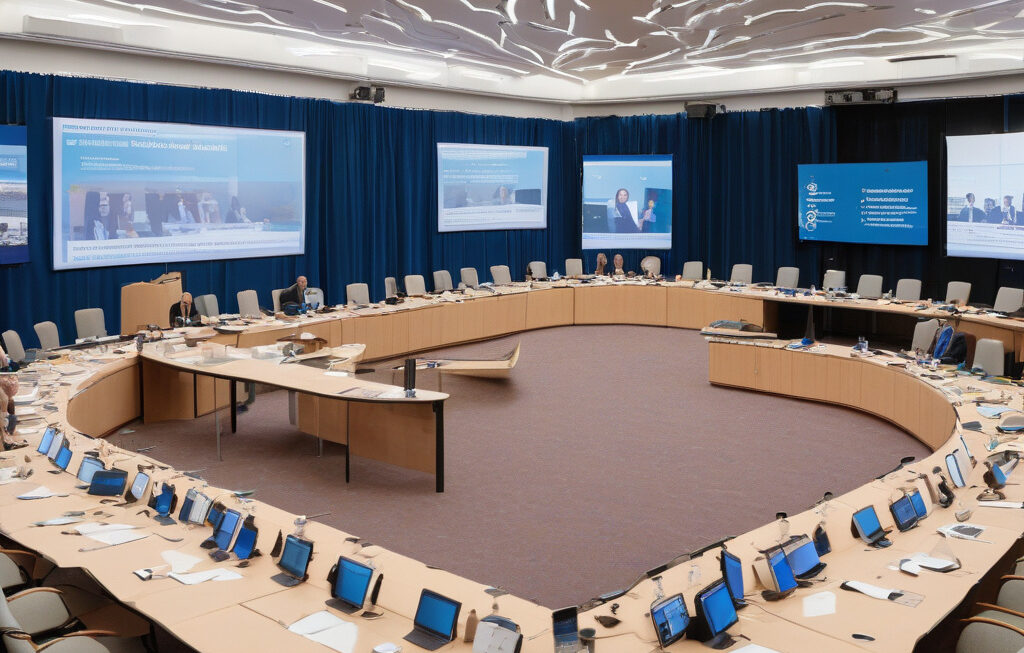Digital Rights Under Threat: Global Majority Communities Advocate for Inclusive Solutions at IGF 2025
The rapid advancement of digital technologies is reshaping societies worldwide, offering unprecedented opportunities for communication, innovation, and economic growth. However, this digital revolution has also brought to light significant challenges, particularly concerning the protection of fundamental rights in the online realm. As the digital landscape continues to evolve, voices from the Global majority communities are increasingly calling for inclusive solutions that prioritize digital rights for all.
In recent years, the Internet Governance Forum (IGF) has served as a crucial platform for stakeholders to come together and discuss the most pressing issues facing the digital world. At the IGF 2025, representatives from Global majority communities are making their voices heard, emphasizing the need for policies that safeguard privacy, freedom of expression, and access to information. These communities, which have historically been marginalized in discussions around digital rights, are advocating for a future where connectivity does not come at the expense of fundamental rights.
One of the key concerns raised by Global majority communities is the growing threat of online censorship and surveillance. In many parts of the world, governments are increasingly using digital technologies to monitor and control their citizens, stifling dissent and limiting freedom of expression. From social media censorship to online surveillance, these practices pose a direct threat to the democratic principles that underpin a free and open society.
Moreover, the digital divide remains a significant barrier to accessing and enjoying the benefits of the online world. While digital technologies have the potential to empower individuals and communities, millions of people around the world still lack access to affordable and reliable internet connectivity. This digital divide disproportionately affects Global majority communities, exacerbating existing inequalities and hindering their ability to fully participate in the digital economy.
To address these challenges, Global majority communities are calling for inclusive solutions that prioritize digital rights for all. This includes advocating for policies that promote online freedom of expression, protect user privacy, and bridge the digital divide. By centering the voices of marginalized communities in discussions around internet governance, stakeholders can work towards creating a more equitable and inclusive digital future.
In addition to policy changes, technological innovations also have a crucial role to play in advancing digital rights for Global majority communities. For example, initiatives that focus on developing affordable and accessible internet infrastructure in underserved areas can help bridge the digital divide and bring the benefits of connectivity to more people. Similarly, tools and platforms that prioritize user privacy and security can empower individuals to navigate the online world safely and securely.
As we look towards the future of the digital landscape, it is clear that protecting and promoting digital rights must be a top priority for stakeholders around the world. By listening to the voices of Global majority communities and working towards inclusive solutions, we can ensure that the digital revolution benefits everyone, regardless of their background or circumstances. Only through collaboration and collective action can we build a digital world that upholds the fundamental rights of all individuals.
In conclusion, the discussions taking place at IGF 2025 highlight the urgent need to prioritize digital rights for Global majority communities. By addressing issues such as online censorship, the digital divide, and privacy concerns, stakeholders can work towards creating a more equitable and inclusive digital ecosystem. As we navigate the ever-changing digital landscape, it is essential to center the voices of marginalized communities and ensure that the benefits of the digital revolution are accessible to all.
digital rights, Global majority communities, IGF 2025, inclusive solutions, internet governance.











